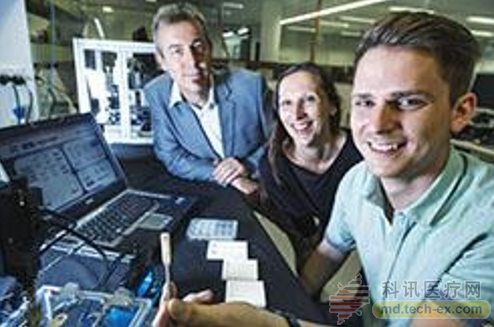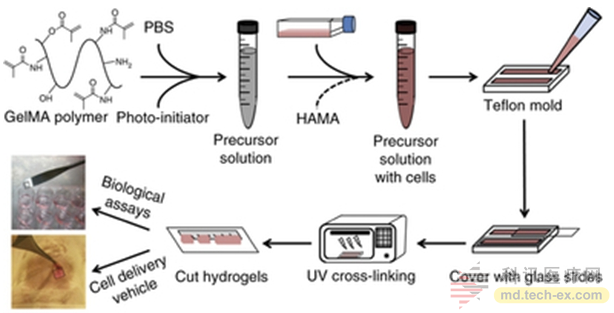Release date: 2016-03-25
They look like small, translucent gems, but it's these tiny gel strips that contain the entire miniature world of a patient's tumor and can be used to test anticancer drugs to help scientists Find the best match between tumor and treatment.
In fact, this "gel" is a brand new 3D printing material developed by researchers at Queensland University of Technology (QUT). This material enables scientists to perform multiple, simultaneous tests on targeted tumors to find the right treatment, opening the way for fast, personalized cancer treatment.

According to Professor Dietmar W. Hutmacher of the QHT Institute for Health and Biomedical Innovation (IHBI), the new material is a gelatin-based hydrogel that can be used to simulate human tissue.
This method of making gelatin-based hydrogels has been published in the journal Nature Protocols.
“Hydrogels are biomaterials commonly used by researchers around the world; gelatin is collagen-based, one of the most common tissues in the human body. We have modified gelatin to develop a 3D tumor microenvironment,†said Professor Hutmacher. .
“Our major breakthrough was to find a way to make this high-quality material on a very large scale. This method is highly reproducible, which means we can make this kind of condensation hundreds of times. Glue, not once or twice in the lab, so researchers around the world can make it." 
Professor Hutmacher said that this new type of hydrogel can be used as a bio-pigment to 3D printing micro-environment, or to print tumor models to test different anti-cancer drugs.
"We will be able to inject this hydrogel with tumor cells, enabling the rapid creation of a range of tumor models for different patients.
“Currently, chemotherapy for cancer treatment is often of luck and affects the whole body. Our newly developed technology can test different anticancer drugs and all their combinations so that we can develop precise personalization. The treatment program, which only fights cancer cells.
"It will reduce the time it takes to find a personalized treatment plan for each patient to one to two weeks."
Moreover, researchers can modify the hydrogel to mimic the stiffness of the cartilage or soft breast tissue; it can be used to create models of all types of cancer, as well as stem cell and tissue engineering studies.
According to Tiangong, the discovery of the new hydrogel is actually part of the biomanufacturing research project led by Professor Hutmacher. Professor Hutmacher's Institute of Health and Biomedical Innovation (IHBI) has also launched the world's first Master of Biofabrication, a double master's degree in Australia and Europe.
Source: Tiangongshe
Fingerprint Scanner,Biometric Fingerprint,Bluetooth Fingerprint Scanner,Wireless Fingerprint Scanner
Shenzhen BIO Technology Co.,Ltd. , https://www.huifantech.com